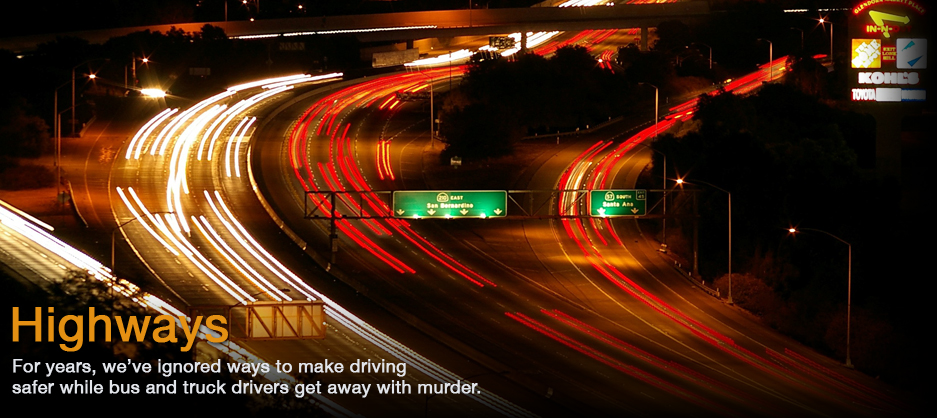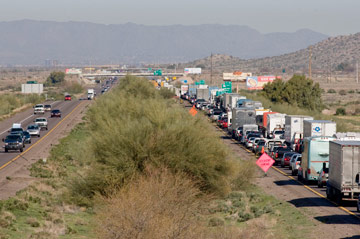The congressional source provided a list of 20 bus companies the GAO suspected of reincarnation. It included motor carrier operations from New York to California that dodged fines from $1,000 to $20,000 by opening new companies. These new companies often used the same addresses, names, drivers and phone numbers as the old businesses.
Transportation officials acknowledged the problems in the 2009 GAO report on reincarnated carriers. At the same time, they told the GAO that catching such carriers is labor intensive and requires far more documentation from carriers than is usually required.
In April of this year, FMCSA Administrator Anne Ferro assured a Senate subcommittee on transportation that the agency is taking steps to more closely monitor new bus and truck companies.
The agency is using a mix of approaches, including raising standards for new operators, requiring operators to maintain safety standards in order to remain in business and removing high-risk operators from highways, Ferro said. Since December 2009, she said, 4,808 new carriers were inspected and 2,184 had failed.
Some caution against implementing too many regulations. “The tougher that you make it to be legally registered the more apt you are to get (companies) that will just chose to operate unregistered,” said Ken Presley, vice president of industry relations for the United Motorcoach Association, an industry advocacy group.
Others argue that the states need to take at least some of the responsibility for motor carriers operating within their borders. Twenty-four states have passed laws that allow them to suspend or revoke the registrations of motor carriers that have been ordered out of service, according to the FMCSA.
States already conduct the majority of commercial vehicle inspections, and that’s more work than they can handle, said Bob Barton of the Nevada Highway Patrol, who inspects new motor carrier companies in Las Vegas. Barton said inspecting just one company can take from an hour and a half to two days.
When he suspects a company is trying to evade regulations, Barton said, there are “very few things that I can do.” Nevada does not have a law that allows it to suspend or revoke the registrations of motor carriers that have been ordered out of service.
The NTSB says the federal government should take primary responsibility for truck and bus oversight because interstate commerce is a national industry. “A bad apple is a bad apple whether it is Minnesota or Washington,” said Paula Sind-Prunier, the board’s chief of safety recommendations.
Sept. 26, 2010


 In No Shape to Drive
In No Shape to Drive